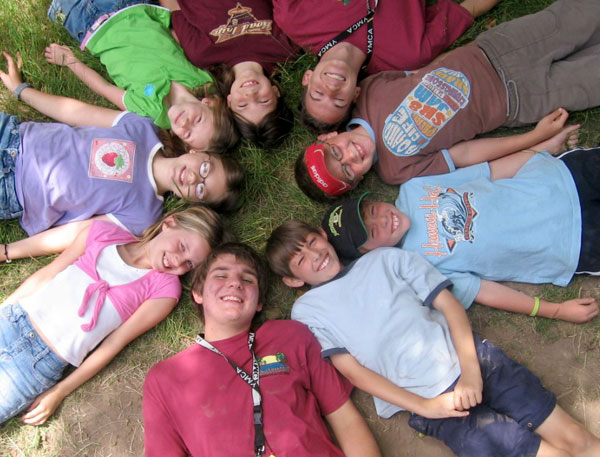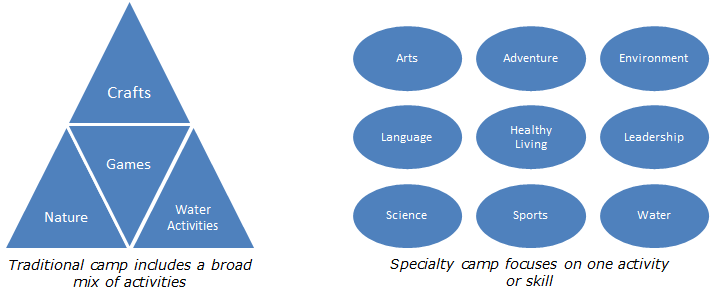Even though there’s snow on the ground, it’s time to start thinking summer—camp, that is!

Camp gives kids the opportunity to explore nature, find new talents, try new activities, gain independence, and make lasting friendships and memories.
With oodles of options out there, finding the right camp for your child doesn’t have to be daunting. Beyond some of the basics like cost and session dates, here are some key decisions to get you started …
How much time will my child spend at camp each day?
One of the first things to think about is the time your child will be at camp—part of the day, all day, or around the clock. Your child’s age, interest in camp, and the desired proximity to home should all factor into this decision. For example, first-time campers might want to start with a day camp before diving into an overnight experience. And many overnight camps recommend children be at least seven years old before spending the night.
What will my child do at camp?
Some camps blend several activities into a traditional camp experience designed to help build character. Specialized camps have a narrow focus designed to help kids improve in an academic area, life skill, or sport.

In addition to the activity or activities included at camp, it’s helpful to get a sense for the amount of structured time versus free time is included. For example, if your child thrives in a self-directed learning environment, look for camps that allow for less structure.
How reputable is the camp?
The quality and credibility of camp can help to narrow your search from the seemingly endless camp choices out there:
- Look for camps that are accredited by the American Camp Association. All YMCA camps are ACA-accredited, and voluntarily go through a rigorous risk-management process to provide a supervised, positive environment with controlled boundaries where children can grow.
- Understand the camp’s history—how long it has been around and how it has grown or changed over time.
- Find out what kind of training is provided to and required of staff. First Aid, CPR, and lifeguard are common certifications to require of camp staff.
- Get a clear sense for the communication plan you can expect with camp staff during your child’s experience.
What are the camp’s values and mission?
Before deciding on a camp, give the camp director(s) a call to better understand the beliefs that the camp is built on, and how it aligns with those of your family. For example:
- Is there a religious, cultural, or community affiliation?
- Is any or all of the camp co-ed?
- Are cell phones and internet access a key part of the experience, or not allowed?
- What level of participation is required versus encouraged?
Is this camp kid approved?
If you have fond memories of attending a camp as a child, consider having history repeat itself and give your child the same experience of attending the camp you did. Ask your friends and neighbors about where they have sent their children—and what have been some favorite spots.
Once you’ve done all your homework, collect a few choices to discuss with your child. Letting kids weigh in on their camp experience will help to set the stage for a successful summer. Get started today and explore the opportunities available at YMCA camps.